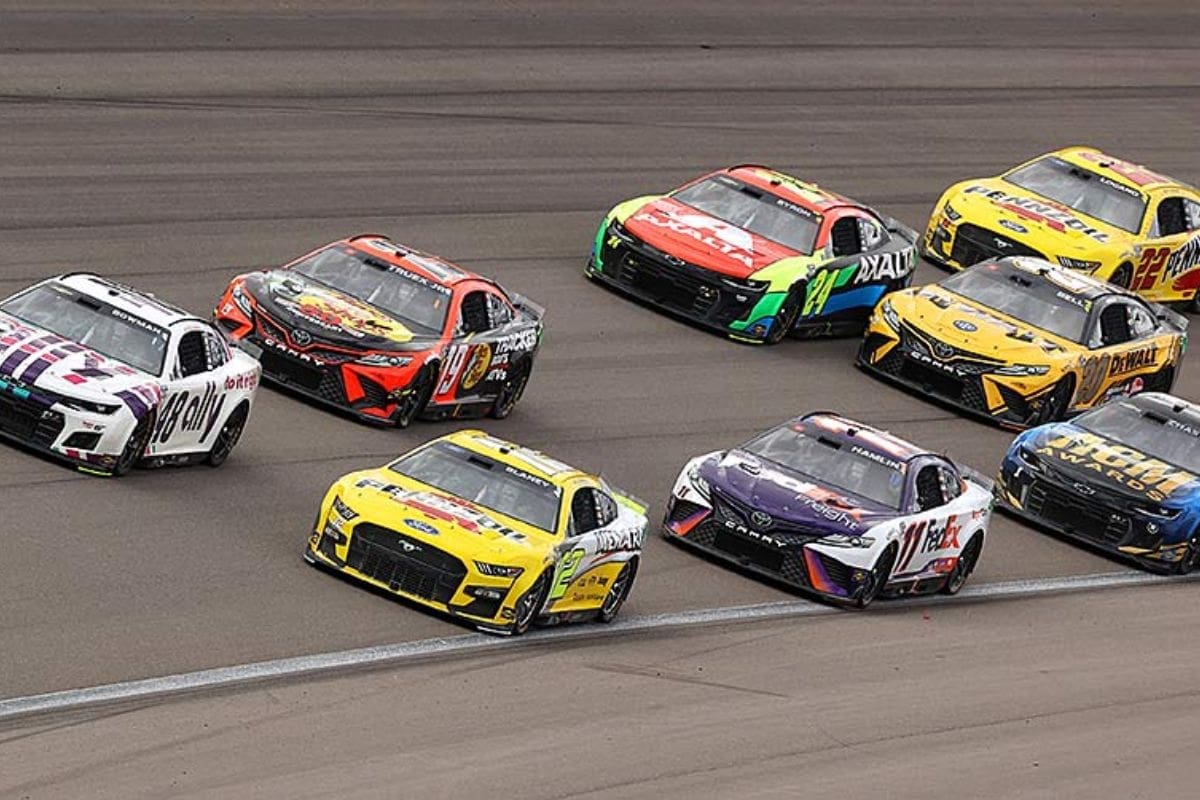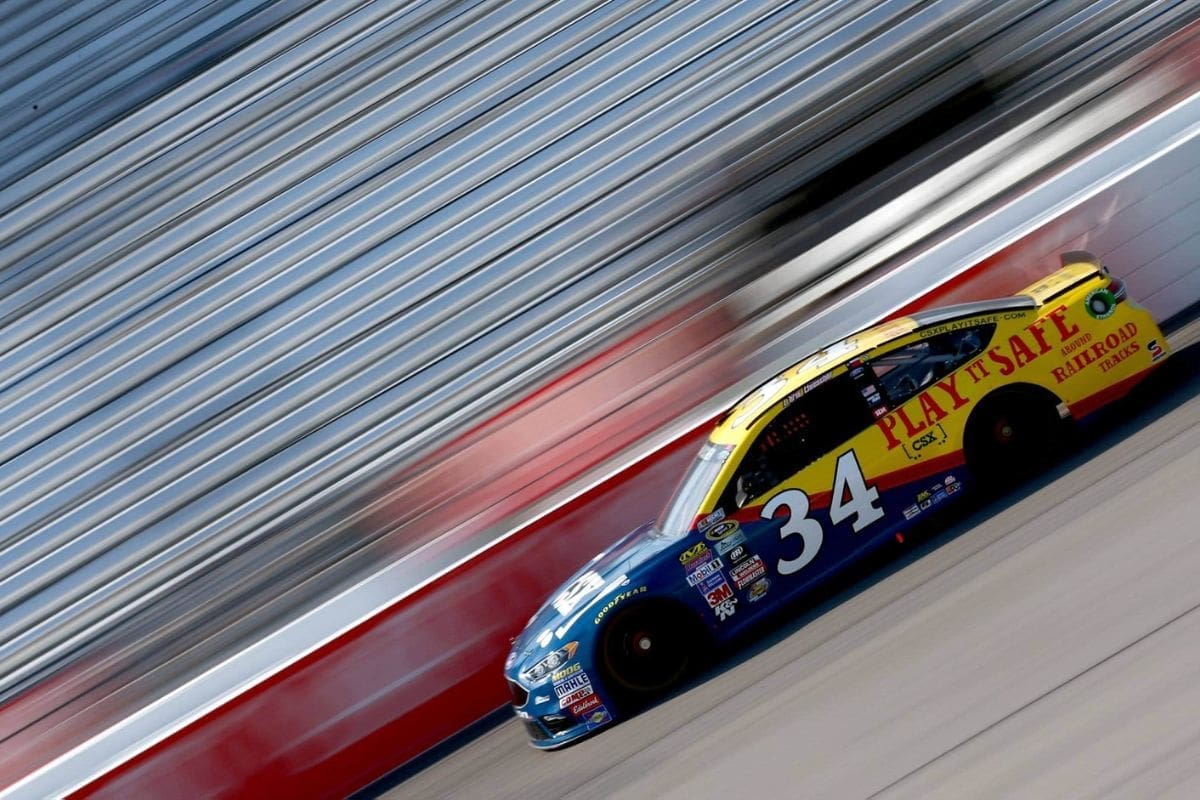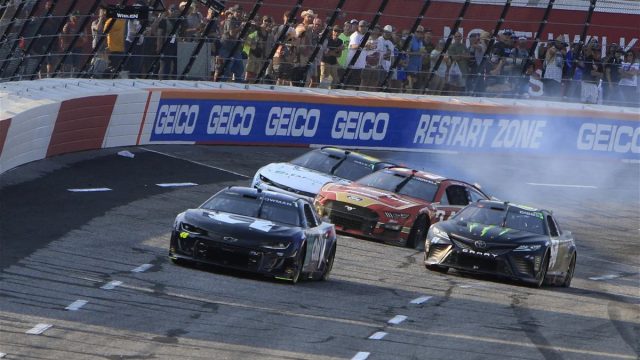Jerry Freeze Hints at Expansion Doubts: Recent remarks by Jerry Freeze of Front Row Motorsports emphasize the complexities tied to potential expansions amid the significant shifts at Stewart-Haas Racing (SHR). As key drivers exit SHR and the 2016 charter agreement faces expiration, the landscape of NASCAR is poised for transformation. Freeze’s cautious stance highlights the intricate balance between seizing new opportunities and the imperative for meticulous strategic planning. The availability of SHR charters may intrigue other teams; however, Freeze’s prudence raises critical questions about the sustainability and foresight required in such ventures.
Key Highlights
- Jerry Freeze expresses uncertainty regarding Front Row Motorsports expansion due to Stewart-Haas Racing’s impending changes.
- Internal discussions at Front Row Motorsports focus on operational scalability and resource allocation for potential expansion.
- Stewart-Haas Racing’s charter availability influences Front Row Motorsports’ strategic decisions and market opportunities.
- Financial challenges in NASCAR create cautious approach to team expansion despite available opportunities.
- Maintaining team synergy and performance is crucial amidst potential expansion and strategic shifts.
Stewart-Haas Racing’s Departure from NASCAR
Stewart-Haas Racing’s decision to exit NASCAR by the end of 2024 signifies a significant moment in the sport, driven by the impending expiration of the 2016 charter agreement and the departure of key veteran drivers. As the charter system approaches its culmination, teams must demonstrate competitive success to maintain their charters, which are vital for guaranteeing entry into races and securing financial stability.
The departure of veteran drivers from Stewart-Haas Racing in 2023 left the team vulnerable, unable to sustain the performance levels required to safeguard their charters. The announcement marks the end of an era for Stewart-Haas Racing, which entered the NASCAR scene in 2009 and quickly established itself as a formidable competitor. However, the reliance on consistent front-row finishes and race victories to validate charters has proven to be an unsustainable model for the team following the loss of its seasoned drivers.

This scenario highlights the fragility of NASCAR’s competitive and regulatory framework, where the fortunes of a team can pivot drastically with changes in driver rosters. The effects of Stewart-Haas Racing’s exit are already evident. The availability of their charters has spurred interest among other teams, keen to capitalize on the opportunity.
Yet, the overall landscape remains uncertain, as many of these teams face similar challenges and may not be in a substantially better position. This development not only reshapes the competitive dynamics within NASCAR but also raises critical questions about the long-term sustainability and structure of the charter system, inviting introspection and potential reforms within the sport’s governance.
Financial Challenges in NASCAR
Despite recent lucrative media rights deals, Cup teams in NASCAR continue to grapple with significant financial challenges. The $7.7 billion, seven-year media rights contract has not translated into fiscal stability for many teams. NASCAR’s unique ownership structure, being a private family-owned entity, contrasts sharply with other prominent sports leagues like the NFL and NBA, which are structured differently and benefit from collective bargaining and revenue sharing.
Even Hendrick Motorsports, recognized for its formidable performance in the Cup Series, has reported not turning a profit in several years. This highlights the broader economic strain that permeates the sport, affecting both top-tier and underdog teams equally. The financial landscape for smaller teams, such as Front Row Motorsports (FRM), is even more precarious.
The charter system, designed as a financial stabilizer, has also faced criticism for exacerbating the monetary crunch. The system’s limitations can result in unequal revenue distribution and operational inefficiencies. This environment fosters a reactive rather than proactive approach, leading teams like FRM to expand without a clear strategic plan.
Front Row Motorsports’ Strategic Moves
Amidst the financial challenges plaguing NASCAR, Front Row Motorsports (FRM) is actively examining strategic opportunities to strengthen its competitive edge, as evidenced by Jerry Freeze’s recent remarks on potential team expansion. In an insightful conversation with Sirius XM NASCAR, Freeze revealed that FRM isn’t simply highlighting market conditions but is proactively seeking ways to enrich its team structure. The possibility of acquiring an extra charter has prompted internal discussions on operational scalability and resource allocation.
“We weren’t necessarily sitting back here just on the drawing board, ‘Hey, it’s time for a third team let’s go find a charter.’ We got wind that there might be opportunity out there, got involved, and started talking about how it could all work and how we would do it.”
“There’s a lot of talent in our people…We will have some really good ones on the front row. Again we’re just trying to race at the talent level across the board…We could really afford to take on several more and improve hopefully anything, on track and off track.” – Freeze

- Proactive Engagement: FRM’s decision to investigate a fourth team wasn’t planned but was triggered by emerging market opportunities. This agile response demonstrates the team’s readiness to capitalize on favorable conditions.
- Resource Optimization: With Michael McDowell likely vacating his spot, FRM is positioned to integrate new talent effectively. This move aligns with their goal of optimizing driver performance and team dynamics.
- Strategic Alliances: The potential influx of talent from Stewart-Haas Racing (SHR), particularly drivers like Josh Berry and Noah Gragson, presents a unique opportunity for FRM to enrich its competitive roster.
View this post on Instagram
Front Row Motorsports’ Driver Progression
Front Row Motorsports is evaluating its driver lineup to guarantee sustained competitive performance and future growth. The team is keenly aware that its success hinges not only on the technical strength of its vehicles but also on the skill and consistency of its drivers. With the No. 34 Ford car soon to be vacated, FRM officials are channeling their efforts into ensuring the seat is filled by a driver who can maintain and lift the team’s on-track performance.
The progression of drivers within the organization is crucial. FRM’s strategy revolves around nurturing talent that can deliver results while aligning with the team’s broader objectives. This approach ensures that they remain competitive in a continuously changing racing landscape. Jerry Freeze’s comments highlight the emphasis on leveraging talent across the board, not just in the drivers but in the entire team’s personnel. This comprehensive view is vital for achieving the desired performance metrics.
Moreover, FRM is focusing on creating a robust support system for its drivers. This includes advanced training programs and state-of-the-art facilities designed to improve their driving skills and overall race strategy. Such initiatives are aimed at developing well-rounded drivers who can adapt to different racing conditions and challenges.
The strategic vision extends beyond immediate gains; it is about building a legacy of excellence. By cultivating a pipeline of skilled drivers, FRM aims to secure its competitive edge and ensure long-term success. This systematic approach to driver progression exemplifies FRM’s commitment to excellence and strategic foresight, positioning the team for sustained achievement in the racing domain.
Todd Gilliland’s Development at Front Row Motorsports
Todd Gilliland’s tenure at Front Row Motorsports has been marked by a noticeable improvement in his on-track performance, despite the absence of Cup wins. Since moving from the ARCA Menards Series to NASCAR, Gilliland has faced a challenging adjustment period, yet his trajectory in the past season displays a commendable upward trend.
“We’re definitely trying to work towards that. I’d say that’s probably the extent I can say, but, yeah, that’s definitely what we’re working towards.” – Gilliland
Gilliland’s best finish this season came during the Talladega race, securing an 8th-place result. However, his consistent placement within the top 20 signifies a growing adaptability and competitiveness. This incremental progress highlights a developmental arc that is promising for both Gilliland and Front Row Motorsports. Jerry Freeze, the team’s general manager, has expressed confidence in Gilliland’s future, highlighting the improved speed and overall progress on track.
“I feel good about where we’re at with Todd and the future with Todd. We’re really, really, really happy with the progression he’s made this year. His speed on the racetrack is much improved and we’re really happy with the job he’s doing.” – Freeze
- Top-20 finishes: Gilliland has steadily clinched several top-20 positions, indicating a reliable performance benchmark.
- 8th-place finish at Talladega: This standout result exemplifies his potential to secure higher placements in competitive fields.
- Consistency in progression: Freeze’s remarks emphasize a season marked by consistent improvement and heightened adaptability.

News in Brief : Jerry Freeze Hints at Expansion Doubts
The departure of key drivers from Stewart-Haas Racing and the expiration of the 2016 charter agreement present significant challenges and opportunities within NASCAR.
Front Row Motorsports, under Jerry Freeze’s cautious leadership, must navigate these changes through strategic planning.
The focus on financial stability and driver development, particularly Todd Gilliland’s progression, is vital.
The evolving competitive landscape necessitates careful decision-making to guarantee sustainable growth and success in an increasingly uncertain environment.
ALSO READ: Front Row Motorsports Expands to Three Cup Teams in 2025
